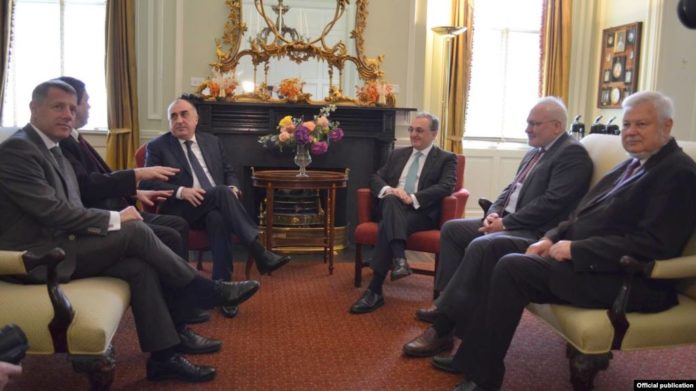WASHINGTON (RFE/RL and Armenpress) — The Armenian and Azerbaijani foreign ministers met in Washington on June 20 under the auspices of the Organization for Security and Cooperation in Europe (OSCE) Minsk Group co-chairs.
US, Russian and French diplomats urged the parties to the Nagorno-Karabakh conflict to prevent further ceasefire violations. The three co-chairs of the OSCE Minsk Group said the talks focused on recent armed incidents around Karabakh and “core issues of the settlement process.” Neither they nor the conflicting parties reported major progress towards a long-awaited peace accord.
“Noting with regret recent casualties, the co-chairs urged the sides to take immediate measures to restore an atmosphere conducive to peace and favorable to substantive talks,” the mediators said in a joint statement.
“They called on the sides to reaffirm their commitment to observe the ceasefire strictly and to refrain from any provocative action, including the use of snipers and engineering works along the line of contact and the international border,” they added.
There is no alternative to the peaceful settlement of the Nagorno Karabakh conflict, Foreign Minister of Armenia Zohrab Mnatsakanyan told reporters following his meeting with Azerbaijani FM Elmar Mammadyarov, Voice of America reported.
According to the statement, Foreign Ministers Zohrab Mnatsakanyan and Elmar Mammadyarov agreed on the need to “reduce the risk of escalation” and pledged to meet again “in the near future.”










